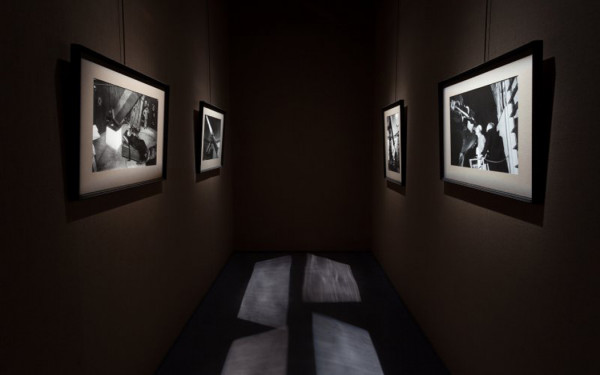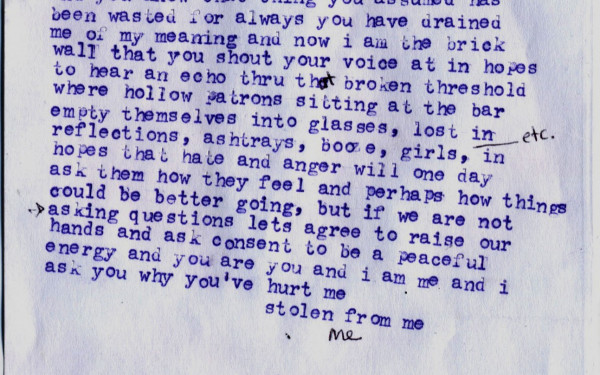Montreal, In Verse
An Introduction to and Exploration of Local Poetry
Walking down St. Laurent St. and Roy St., one may come across Leah Benetti, a local street poet. She earns her living with her typewriter, writing short poems for curious passersby on a pay-what-you-can basis.
Benetti, who got her big break as a street poet at the city’s annual Mural festival, sees Montreal as an important halfway point between her maritime hometown of Truro, NS, and the biggest metropolis in Canada: Toronto.
It can be easy to forget that the lifeblood of our fine city is not its hard exterior grit, but rather an undercurrent of creative individuals like Benetti who collectively turn Montreal’s art scene into one of Canada’s greatest.
“It was already a pretty well-known place, what with the likes of Leonard Cohen and such,” Benetti explained.
Benetti works with a collective called the Spontaneous Prose Store, which allows anyone to choose a subject about which one of the group’s “esteemed in-house poets” will compose an original poem. Its Facebook page describes its members as “Strange people [who] have strong ideas on secluded street corners. Some are illustrated by hand [sic] and distributed, also by hand, on the self-same street corners, or different ones sometimes… it depends.”
“I earn my living like this,” said the former University of Toronto student, “and I really enjoy what I do.”
Between local cafe open-mics, showcases, artistic festivals and smaller creative writing collectives, the poetry community in Montreal is thriving.
Was this all made possible by cheap rent? Perhaps, but there is a lesser-known reason—the unparalleled cooperation between Canada’s two main linguistic indentities on this metropolis of an island.
Montreal is often portrayed as the clashing of two worlds, but within the microcosm that is Montreal’s poetry scene, Anglophone and Francophone cooperation creates a cross-pollination of ideas unique to Canada. Combined with the contribution of many other ethno-linguistic groups, Montreal’s special place on the artistic map is clear.
“It’s not uncommon to speak French during a poetry open-mic night where most people are speaking English,” said Benetti. Indeed, the unique mosaic of cultures that make up this city is one of its greatest strengths.
Anyone looking to get involved or to witness the beauty that is our local poetry scene unravel before their eyes need only look in front of them. Many businesses, co-ops, and collectives exist already as well-established local hangouts for artists and poets.
Famous open-mic or slam poetry events take place throughout the city, and one local hot spot, Kafein, sits just across the street from Concordia’s own Hall building on Bishop St. The local coffee shop-slash-bar on holds popular open-mic poetry nights every other Tuesday for anyone who wants to perform.
Apart from venues, many local poetry collectives, such as Metatron, a local independent publisher which specializes in contemporary literature, exist as platforms to move poets and their work into the public eye. Metatron, whose goal is to provide support to emerging writers and publish literature that reflects the thoughts of our generation, is another example of the kind of grassroots organization that flourishes in Montreal.
In its infancy, the collective started as an off-beat reading series hosted by co-editor Guillaume Morissette. Now, Metatron works to help local artists who may not have access or connections to a traditional publishing house.
Ashley Opheim, managing editor of Metatron, recalls when she first started studying creative writing in 2009.
“The cultural fabric of the city [back then] was largely dominated by the music scene, but I think it’s different now,” Opheim said.
She added that poetry is much more valued and has more cultural capital than it used to.
“There is definitely a powerful community of writers living and working here, and perhaps more visibility around their work than there used to be,” she said.





